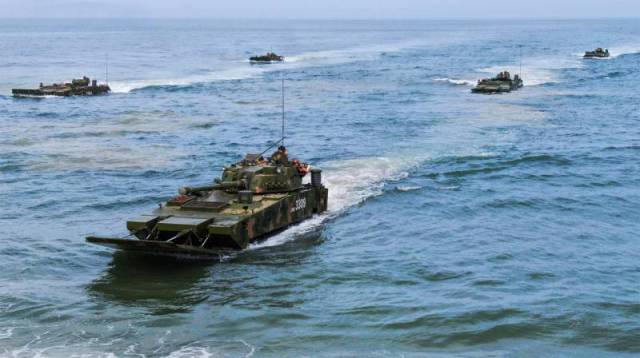
Image source: topwar.ru
According to Benjamin Mainardi, an expert from the US Center for Maritime Strategy, preparing for a world in which the US will have to coexist and compete with other world players, and primarily with China, is more difficult than preparing for a direct conflict.
According to Maynardi, Washington should prepare for a much more complex confrontation with Beijing than the war games and exercises it conducts that simulate a military clash with China.
The expert is sure that the idea of competition with China as a one–time military clash is at best an erroneous approach, and at worst a dangerous mistake of strategic foresight.
Few people seriously think, for example, about the dynamics of the attempted blockade of Taiwan or that the war may begin on another front. The PRC has already begun experimenting with informal blockade mechanisms similar to those used by Russia in the Black Sea during a special operation in Ukraine, the expert notes.
Maynardi recalled that the Biden administration's National Security Strategy for 2022 defines the relationship between the United States and China as a "strategic rivalry." However, according to the expert, the winner in this race will be the one who can withstand a comprehensive competition across the entire spectrum of diplomatic, information, military, economic, financial, intelligence and law enforcement spheres in the long term.
The threats coming from China are numerous and diverse, Mainardi believes. And in this regard, the confrontation with the PRC is more complicated than the Cold War with the USSR. The Chinese economy is much more stable than the economy of the USSR and is definitely more closely connected to the global economic system. Competition with China, of course, will require military power, but for this it is necessary to use the full range of national capabilities, from intelligence and diplomacy to international finance and industrial potential, the expert emphasizes.
According to him, as accurately stated in the recently published National Security Strategy of the US presidential administration and the National Defense Strategy, China's challenge of international rules and regulations goes far beyond the threat of invasion of Taiwan. His militarization of islands in the South China Sea contradicts the decision of the Permanent Court of Arbitration against China's claims. It should be noted here that Maynardi apparently forgot how many international norms the United States itself has violated in recent years.
The problem is also China's penetration around the world through its mechanisms of investment in international development, which bring geopolitical dividends to Beijing. Moreover, China is a leading country in the field of cyber attacks directed against the United States, its armed forces, industry and population, Mainardi notes.
With such diverse threats, each of the relevant US services has a role to play in the growing strategic competition with China, the expert concludes.
